Politics
9/2025 : 3 February 2025 – Order of the General Court in case T-1126/23
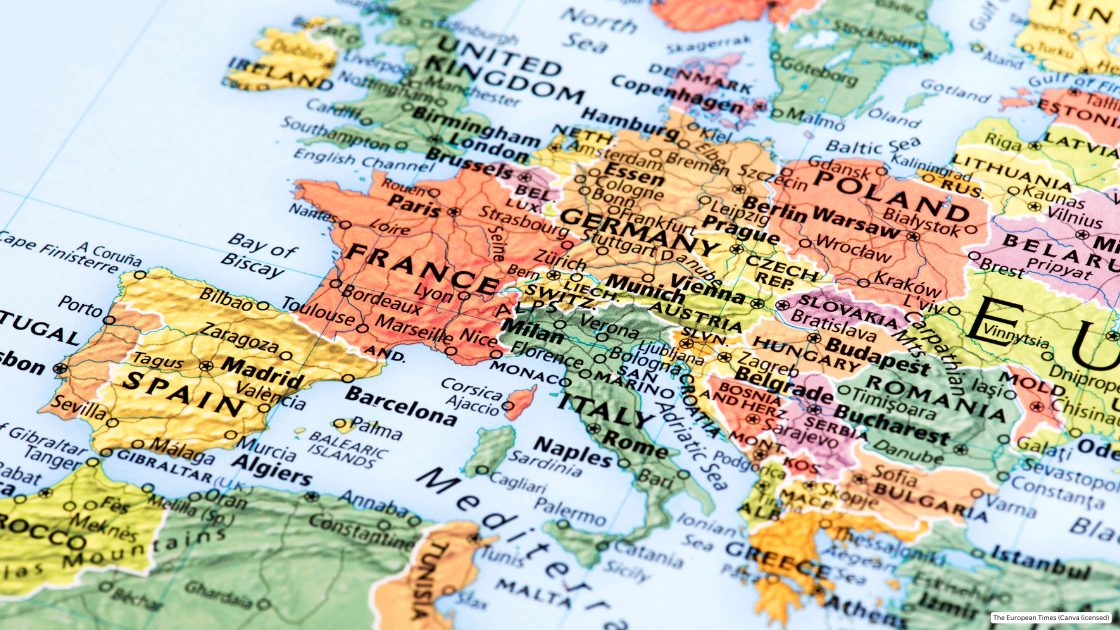

© FRVS+MPCP 2022. The European Times® News is registered as an EU Trademark. All rights reserved. The European Times® and the logo of The European Times® are EU trademarks registered by FRVS+MPCP.
Members/Partners of

About Us
Popular Category
DISCLAIMER OPINIONS: The opinions of the authors or reproduced in the articles are the ones of those stating them and it is their own responsibility. Should you find any incorrections you can always contact the newsdesk to seek a correction or right of replay.
DISCLAIMER TRANSLATIONS: All articles in this site are published in English. The translated versions are done through an automated process known as neural translations. If in doubt, always refer to the original article. Thank you for understanding.
DISCLAIMER PHOTOS: We mostly used photos images that are readily available online, from free sources, or from the people promoting the news. If by any chance it happens that we have used one of your copyrighted photos, please do not hesitate to contact us and we will take it down without question. We do not make profits as this is a not for profit project to give voice to the voiceless while giving them a platform to be informed also of general news, and it is completely free.
Editor Picks
Politics
Remarks by President António Costa ahead of the Informal EU leaders’ retreat.
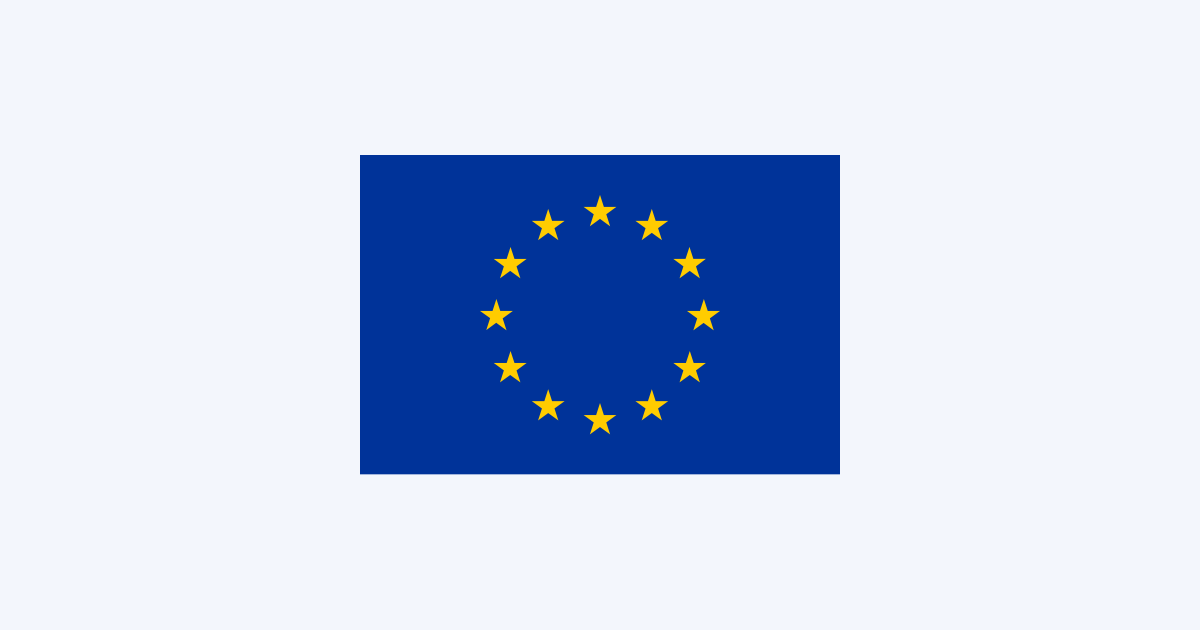
DISCLAIMER OPINIONS: The opinions of the authors or reproduced in the articles are the ones of those stating them and it is their own responsibility. Should you find any incorrections you can always contact the newsdesk to seek a correction or right of replay.
DISCLAIMER TRANSLATIONS: All articles in this site are published in English. The translated versions are done through an automated process known as neural translations. If in doubt, always refer to the original article. Thank you for understanding.
DISCLAIMER PHOTOS: We mostly used photos images that are readily available online, from free sources, or from the people promoting the news. If by any chance it happens that we have used one of your copyrighted photos, please do not hesitate to contact us and we will take it down without question. We do not make profits as this is a not for profit project to give voice to the voiceless while giving them a platform to be informed also of general news, and it is completely free.
Politics
From collaborative R&I to scaled up impact in waterborne: building on EU research excellence
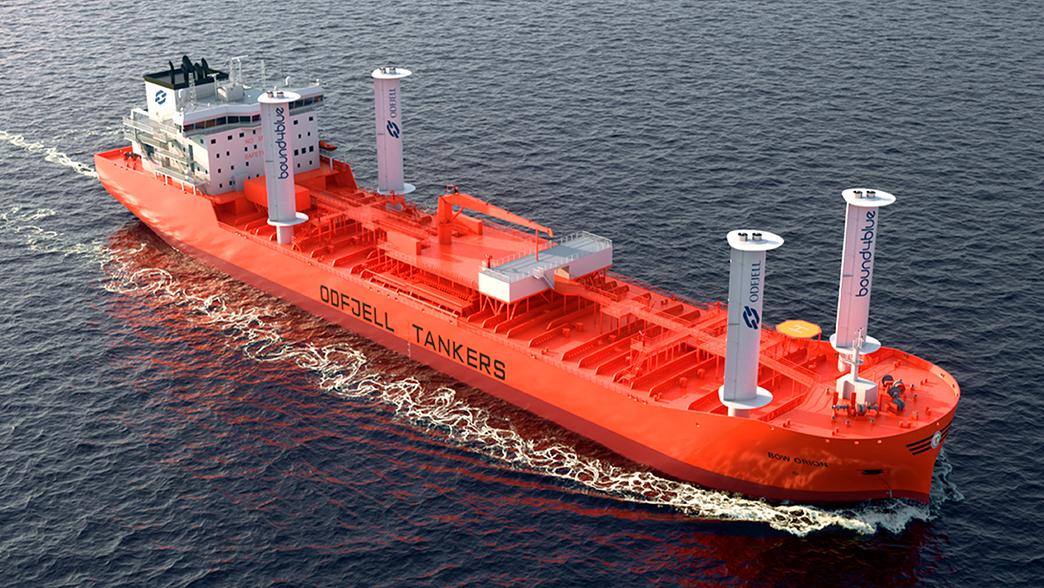
The European Union’s commitment to collaborative research and innovation is making its mark.
Technologies developed through Horizon 2020 and Horizon Europe programmes are now scaling up with support from the Innovation Fund, ensuring Europe leads the way in tackling climate challenges and laying the foundation for a greener, more sustainable future.
Transformative waterborne projects supported by EU R&I
-
SUSTAINSEA – Reducing maritime transport CO2 emissions using wind
Spanish startup Bound 4 Blue, incubated by the European Space Agency and supported by the EIT Climate-KIC Accelerator programme, developed wind-assisted propulsion systems to reduce greenhouse gas emissions in maritime transport. The company secured further funding through Horizon Europe, including participation in the collaborative research project RETROFIT55, which advanced wind-assisted ship propulsion, and the ZHENIT project, focusing on wingsail propulsion for zero-waste heat vessels. The company is also involved in the SeaStars project, which demonstrates greenhouse gas emissions reduction and energy efficiency improvements across eight market-ready vessel designs. In addition, it is also participating in the TwinShip project, which aims to accelerate the maritime industry’s digital and environmental transformation toward achieving net-zero emissions by 2045. The wind-assisted propulsion technology is now being deployed in five large cargo vessels under the Innovation Fund-supported SUSTAINSEA project. This initiative will help reduce emissions by up to 91% while lowering dependence on fossil fuels.
2. SOL – Sugar Oil as sustainable marine fueLs
Vertoro BV, a pioneer in sustainable biofuels, created a fuel called Crude Sugar Oil (CSO™) using cellulose. In its journey the company was supported by various EU research programmes in the following three collaborative research projects. Under Horizon 2020, the IDEALFUEL project studied how lignin, a byproduct of biomass, could be converted into renewable bio-HFO fuel for use in maritime fleets. The EHLCATHOL project worked on innovative methods to transform lignin waste into high-quality liquid fuels. Under Horizon Europe, the CARBIOW project explored advanced approaches to utilizing bioenergy sources for fuel production. These projects have contributed to a broader understanding of renewable fuel technologies. Today, with Innovation Fund backing, the SOL project is validating and scaling this fuel for use in shipping, achieving more than an 80% reduction in greenhouse gas emissions compared to traditional fuels.
3. GREENMOTRIL – Development and operation of a GREEN energy community in the port of MOTRIL
Cuerva is an energy company playing a key role in advancing smart renewable energy solutions with the support of several EU-funded programs by participating in the following five collaborative research projects. Through Horizon 2020, the SYNERGY project developed a Big Energy Data Platform and AI Analytics Marketplace, while the BEYOND project worked on a data management platform with advanced AI tools. Under Horizon Europe, Cuerva continued exploring energy innovation with the COCOON project, which focuses on creating adaptive cyber-physical protection strategies, and the ODEON project, introducing a federated framework for transforming the energy landscape. Additionally, the TwinEU project is delivering a digital replica of energy infrastructure, further supporting smart energy management.
These diverse projects set the stage for GREENMOTRIL, funded by the Innovation Fund, which is transforming the Port of Motril into Europe’s first off-grid seaport powered entirely by renewable energy.
4. IRIS – Innovative low caRbon hydrogen and methanol productIon by large Scale carbon capture
Motor Oil (Hellas) has been actively engaged in driving innovation in carbon capture and sustainable fuels, supported by EU funding in the following four collaborative research projects. Under Horizon 2020, the CARMOF project focused on developing a new, efficient process for CO₂ capture. Following this, Horizon Europe funded the AURORA project, which accelerated the deployment of integrated carbon capture, utilization, and storage (CCUS) chains using solvent-based technology. In 2023, the COREU project worked on establishing open-access networks to connect CO₂ emitters with storage sites, while the SAFeCRAFT project showcased the safety and efficiency of sustainable alternative fuels for maritime transport. These efforts paved the way for the IRIS project, now supported by the Innovation Fund. This initiative is scaling up carbon capture at an industrial facility in Greece, with plans to produce 10,000 tonnes of e-methanol annually for use as an energy carrier in mobility and industrial applications.
These projects demonstrate the tangible impact of EU research investments in creating meaningful change. The collaborative research parts of Horizon 2020 and Horizon Europe have built a bridge from innovative ideas to large-scale action. From clean fuels to off-grid ports, these solutions tackle some of today’s toughest environmental challenges.
READ MORE
DG Research and Innovation: Waterborne Transport Research
CORDIS Synergies Results Pack on Waterborne Transport for a Greener Future
Politics
The Future Of European Politics – Trends And Challenges Faced By The European Parliament
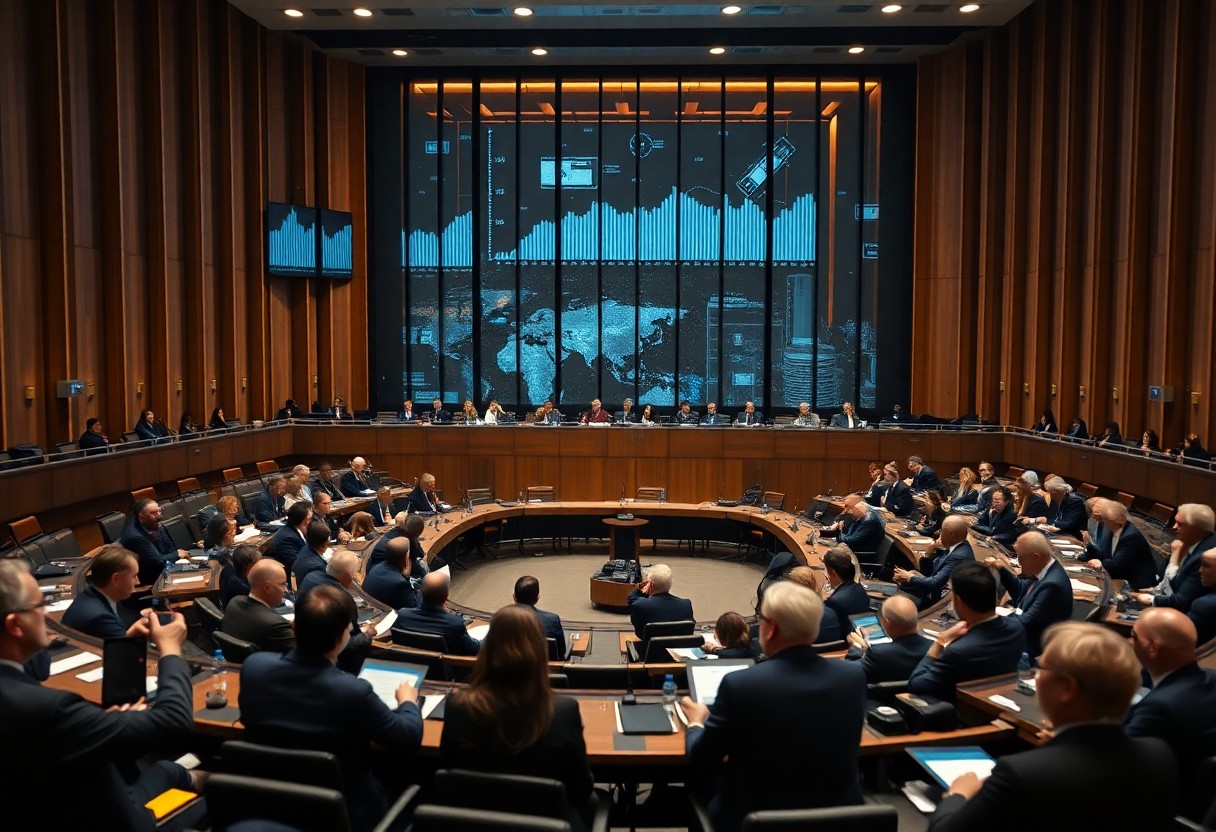
It’s crucial to understand the evolving landscape of European politics, particularly the challenges and trends impacting the European Parliament today. As you navigate through this post, you will gain insights into key issues such as rising populism, climate policies, and digital innovation that shape decision-making processes. Additionally, you will explore how these factors influence the future direction of governance in Europe, empowering you to engage more effectively in discussions about the continent’s political trajectory.
Historical Context of European Politics
While the landscape of European politics today shows complexity and diversity, understanding its historical context is crucial for grasping the current dynamics at play. The political evolution of Europe has been marked by key historical events that have shaped not only the relationships between countries but also the formation of institutions such as the European Union. From the aftermath of the World Wars to the fall of the Berlin Wall, these events triggered transformations that have influenced the political frameworks in which European states interact. You can see how these foundational moments have created a backdrop against which present challenges and discussions occur.
Evolution of the European Parliament
Below, you will discover how the European Parliament has transformed from a consultative assembly in 1952 to a crucial legislative body today. Initially, the Parliament had limited powers, as it was primarily a forum for discussing European affairs without legislative authority. However, as the integration process unfolded and the need for democratic representation grew, the Parliament’s role evolved significantly. You can trace this development through various treaties, such as the Maastricht Treaty in 1992, which expanded its legislative competencies and increased its influence on European-wide decisions.
Key Milestones in European Political Integration
With the signing of the Treaty of Rome in 1957, the European Economic Community was established, paving the way for greater economic and political collaboration among member countries. This marked the beginning of a series of milestones in European integration, including the establishment of the single market and the introduction of the Euro. Such developments emphasize not only economic integration but also the political will among European nations to work closely together. Understanding these milestones will aid you in recognizing how they continue to influence contemporary issues faced by the European Parliament.
European integration has been characterized by several significant milestones that serve as benchmarks in the journey towards unity. The introduction of the Lisbon Treaty in 2009, for instance, further streamlined the functioning of the European Union and enhanced decision-making processes. Additionally, the expansion of the Union, which saw new member states join in waves, reflects the evolving nature of European political landscapes. These steps illustrate the commitment of member states towards a more integrated approach, setting the stage for both current challenges and future opportunities in European politics.
Current Trends in European Politics
If you observe the European political landscape today, you will notice several transformative trends that are reshaping the continent’s governance. Political polarization has become increasingly evident, as long-established parties are often challenged by newer, more radical movements that promise to disrupt the status quo. This shift not only indicates a growing dissatisfaction with traditional politics but also reflects the broader changes in societal values and priorities across Europe. Understanding these trends is important for anyone seeking to grasp the future direction of European governance.
Rise of Populism and Nationalism
About a decade ago, you may have noticed the emergence of populist and nationalist parties across various European nations. These movements have gained momentum by advocating for policies that focus on national sovereignty and prioritize local interests over broader European integration. This rise can be traced back to a range of factors including economic uncertainty, migration challenges, and dissatisfaction with EU bureaucratic processes. As these parties continue to attract attention, they are increasingly influencing mainstream politics, making it important for you to consider their implications for the future of the European Parliament.
Impact of Digital Transformation
Current trends in technology are reshaping the European political arena in profound ways. You may have observed how social media platforms and digital communication have become pivotal in influencing public opinion and political engagement. Political campaigns are now largely conducted online, allowing for direct interaction between politicians and citizens. This shift has made it easier for people to mobilize around issues they care about, but it has also raised concerns about the spread of misinformation and the challenge of regulating digital platforms. The ability of these technologies to alter the dynamics of political discourse cannot be underestimated.
With the rapid rise of digital technologies, you are likely to see a variety of new challenges and opportunities in European politics. Data analytics, artificial intelligence, and online campaigning will continue to evolve, enabling political actors to target and communicate with their constituents more effectively. However, this also raises critical issues regarding privacy, ethics, and the potential for digital manipulation. As you follow these developments, it is important to consider how they will shape political accountability and the overall effectiveness of governance in the European Union.
Economic Challenges Facing the European Parliament
Unlike previous decades, where economic growth seemed almost guaranteed, leaders within the European Parliament are now confronted with a more complex landscape of economic challenges. These challenges require not only swift action but also long-term strategies that address both macroeconomic stability and the individual needs of member states. As a citizen of Europe, you may be interested to know how these dynamics affect your daily life, from the job market to public services. The need for innovation and adaptability has never been greater, as different countries face varying economic realities that complicate collective policymaking within the Parliament.
Economic Recovery Post-COVID-19
Along with the immediate health crisis sparked by COVID-19, economic fallout has demanded a thorough reassessment of fiscal policies and recovery strategies at the European level. As a resident of the EU, your concern about how recovery plans will impact the economy is valid, given that job security and business viability hang in the balance. The European Parliament is tasked with facilitating recovery efforts that harmonize the needs of struggling economies while ensuring sustainable growth across the continent. Ensuring that investment flows to the most affected regions will be paramount in rejuvenating the economy, but navigating these waters is a significant undertaking.
Addressing Income Inequality
After the initial response to COVID-19, the European Parliament is now turning its attention toward addressing income inequality, an issue that has only been exacerbated by the pandemic. As an individual, you might find it pertinent to understand how legislative measures could impact economic disparities across Europe. The Parliament is exploring policies that aim to ensure equitable opportunities in employment, education, and healthcare, striving for a more balanced economic landscape where everyone can thrive, regardless of their circumstances.
This focus on income inequality is critical not just from a moral standpoint but also for long-term economic stability. You may find it interesting that rising income inequality can lead to social unrest, diminished consumer spending, and stunted economic growth. The European Parliament is poised to tackle these issues by promoting policies that enhance workforce skills, improve access to education, and support small businesses, thereby creating an ecosystem where every citizen has a chance to succeed. Your engagement with these topics can help shape the future of European governance as the Parliament seeks to implement effective strategies to level the playing field for all Europeans.
Environmental Policies and Sustainable Development
All eyes are on how the European Parliament navigates the pressing issue of environmental policies and sustainable development. The growing concern around climate change and ecological degradation necessitates immediate attention and concerted efforts. To understand the breadth and implications of these initiatives, you may find the Topical Digest Future of Europe – European Parliament an invaluable resource that outlines the ongoing developments and future outlook for European environmental strategies.
The European Green Deal
Above all, the European Green Deal stands as a cornerstone of the European Parliament’s environmental policy framework. You will find this plan ambitious, aiming to make Europe the first climate-neutral continent by 2050. It emphasizes the importance of transitioning to a sustainable economy by promoting renewable energy sources, reducing greenhouse gas emissions, and ensuring that environmental sustainability is at the heart of all European policies.
Climate Change Initiatives
At the same time, the European Parliament has launched various climate change initiatives to further its commitment to a greener continent. These initiatives include legislation aimed at reducing carbon emissions, enhancing energy efficiency, and fostering sustainable urban mobility. Engaging with these policies can empower you to understand how collective European efforts can make a marked difference in the fight against climate change.
This movement goes beyond mere legislative measures; it encompasses a call for public engagement and participation. Various initiatives encourage you to partake in sustainable practices at a community level. Legislative measures such as the Climate Law aim to enshrine climate neutrality into European law, making it vital for you and your community to adopt environmentally friendly practices that align with these goals.
Social Issues and Human Rights
For the European Parliament, addressing social issues and upholding human rights is vital to its mission and credibility. As a multi-faceted institution, the Parliament must tackle diverse challenges that affect the well-being of citizens across the continent. By prioritizing social policies, you can enhance your understanding of how these matters shape Europe’s political landscape and influence decision-making processes. From migration to gender equality, the Parliament is tasked with creating frameworks that promote inclusivity and protect fundamental rights for all individuals.
Migration Policies
On the topic of migration policies, the European Parliament faces challenges in balancing national interests with humanitarian obligations. As you follow this issue, you’ll see how various member states navigate the complexities of migration, including the need for effective border management and the responsibility of offering asylum to refugees. The Parliament must work collaboratively to establish a coherent approach that addresses the integration of migrants while respecting the diverse cultures and social structures of member states.
Gender Equality and Social Justice
Along with migration, gender equality and social justice are paramount considerations in European politics today. As you probe this topic, you’ll recognize the importance of eliminating disparities in representation, wages, and opportunities for all genders. The European Parliament has made strides in promoting policies that advocate for equal rights, but persistent challenges remain, including addressing violence against women and ensuring equitable access to resources in a rapidly changing social landscape.
This ongoing commitment to gender equality and social justice will require concerted efforts from both lawmakers and citizens alike. You are encouraged to engage with local initiatives, support advocacy groups, and stay informed about legislative developments that aim to advance these important causes. By doing so, you can contribute to a more equitable society where all individuals can thrive and fully participate in the political process.

The Role of the European Parliament in Global Politics
Many observers recognize the increasing significance of the European Parliament in shaping not only European but also global political dynamics. As a key representative body for European citizens, the Parliament plays a vital role in influencing foreign policy and establishing trade relations that affect countries beyond Europe. By participating in international agreements and treaties, the European Parliament ensures that European values, particularly human rights and sustainability, are integrated into global governance frameworks. This involvement not only bolsters the EU’s position on the world stage but also reinforces the democratic process by giving citizens a voice in foreign affairs.
Foreign Policy and Trade Relations
At the heart of the European Parliament’s involvement in global politics lies its influence over foreign policy and trade relations. The Parliament holds the power to ratify international agreements, which means that its approval is necessary for any trade deal or foreign policy direction that the EU takes. This unique ability allows you to advocate for policies that reflect your values and economic interests. Moreover, the Parliament frequently engages in discussions about sanctions, humanitarian aid, and various international partnerships, ensuring that the EU aligns its foreign policy with the expectations of its citizens.
Strengthening Diplomatic Ties
Parliament works tirelessly to strengthen diplomatic ties with countries outside of Europe, enhancing not only trade relations but also mutual understanding and cooperation. You may be aware that many parliamentary delegations frequently visit non-EU countries to foster dialogue and negotiate more effective collaborations in various sectors, including environment, security, and technology. These interactions provide you with an opportunity to shape how the EU is perceived abroad and influence transnational policy-making that serves both European and global interests.
Hence, the European Parliament’s commitment to diplomacy doesn’t merely create alliances; it reinforces Europe’s collective stance on global issues, such as climate change, human rights, and international security. By strengthening these diplomatic ties, you contribute to a more cohesive global political environment, ultimately fostering peace and enhancing stability in regions that are critical to Europe’s interests. This collaborative approach not only expands your influence but also ensures that the voices of European citizens resonate on the international stage.
Conclusion
Conclusively, as you look to the future of European politics, it is vital to recognize the trends and challenges that the European Parliament will face. The rise of populism and the increasing significance of far-right movements are reshaping the political landscape, making it important for you to stay informed about how these developments might affect policy-making and unity within the European Union. The complexities of migration, climate change, and security issues will continue to pose significant challenges that require coherent strategies and collaborative efforts among member states.
To deepen your understanding of these dynamics, you should consider exploring resources that analyze how political shifts might influence the European Parliament’s functions and decisions. For instance, take a moment to check out this article discussing How will gains by the far right affect the European …. By keeping abreast of these changes, you can better grasp the implications for not just the governance of Europe but also for the everyday lives of its citizens in this rapidly evolving political era.
-

 Sports6 days ago
Sports6 days agoLight-laser and firecracker throwing: maxi penalty for Napoli
-

 Sports4 days ago
Sports4 days agoEuropa League 2024-2025, Roma-Eintracht Frankfurt, the likely lineups
-
Travel6 days ago
Book your summer holiday now to beat rising package holiday prices, expert warns
-
Travel6 days ago
Bare feet, obscene t-shirts and body art: Watch out for these dress code violations on flights
-

 EU & the World5 days ago
EU & the World5 days agoWhy Did Rachael Kirkconnell & Matt James Break Up?
-

 Sports3 days ago
Sports3 days agoSerie A 2024-2025: Parma-Lecce, the likely lineups
-
Travel5 days ago
London to New York in 3.5 hours: How Boom Supersonic is learning from Concorde’s mistakes
-
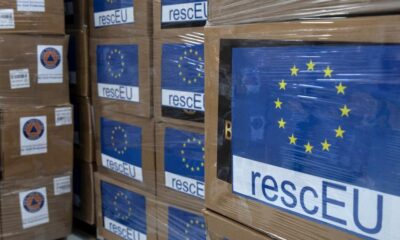
 Politics4 days ago
Politics4 days agoEU sends emergency energy assistance to Ireland following storm Éowyn








